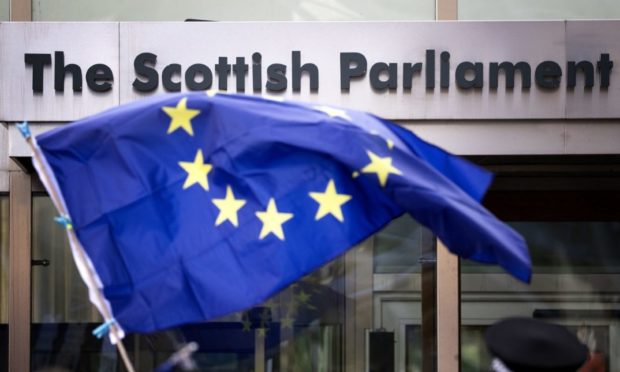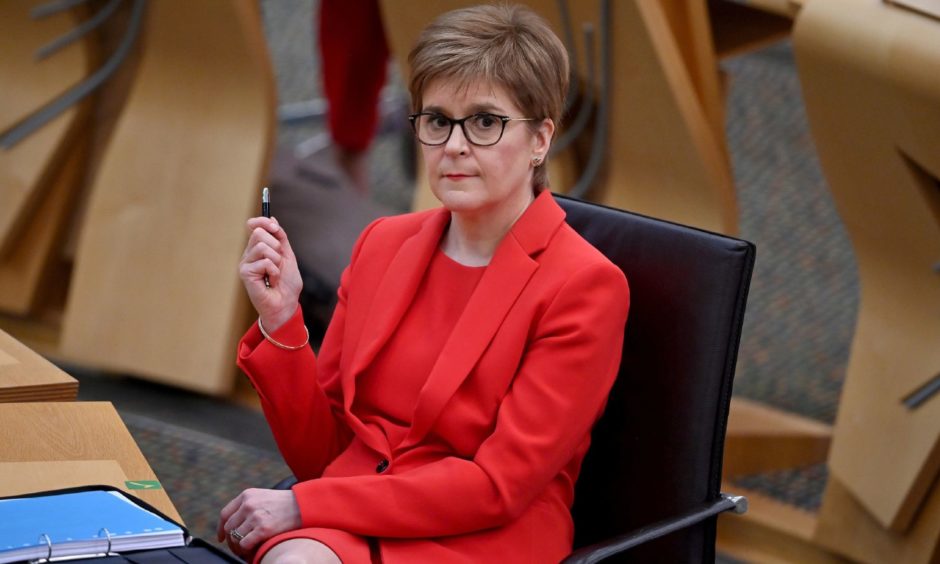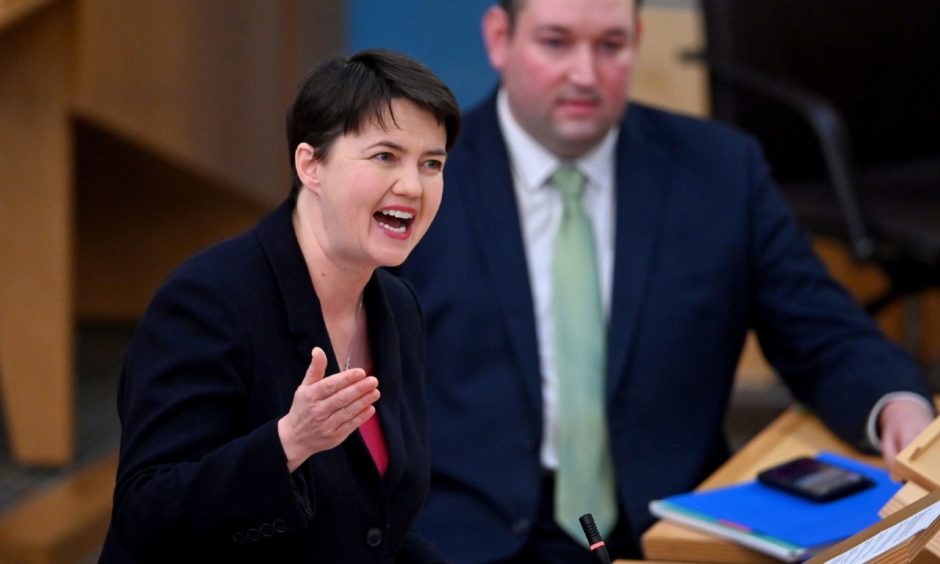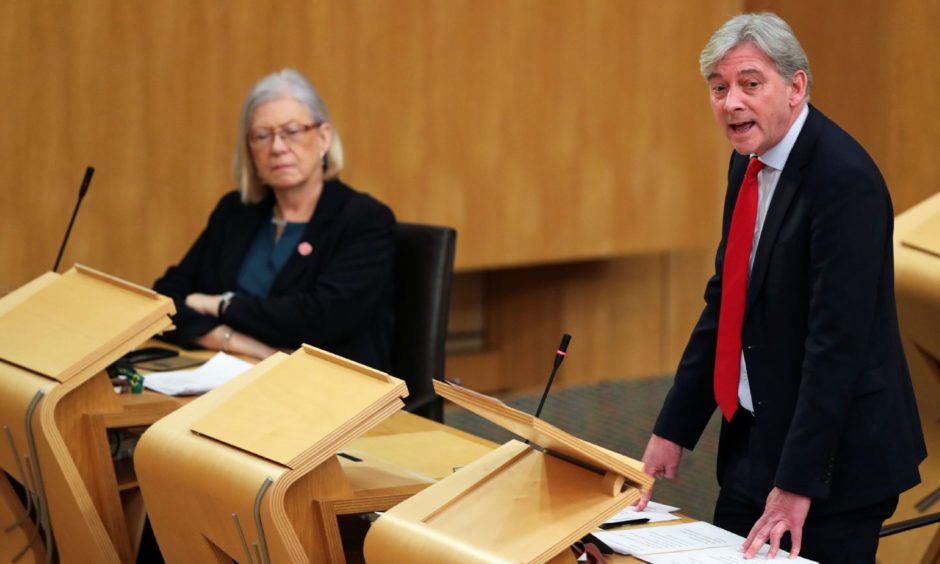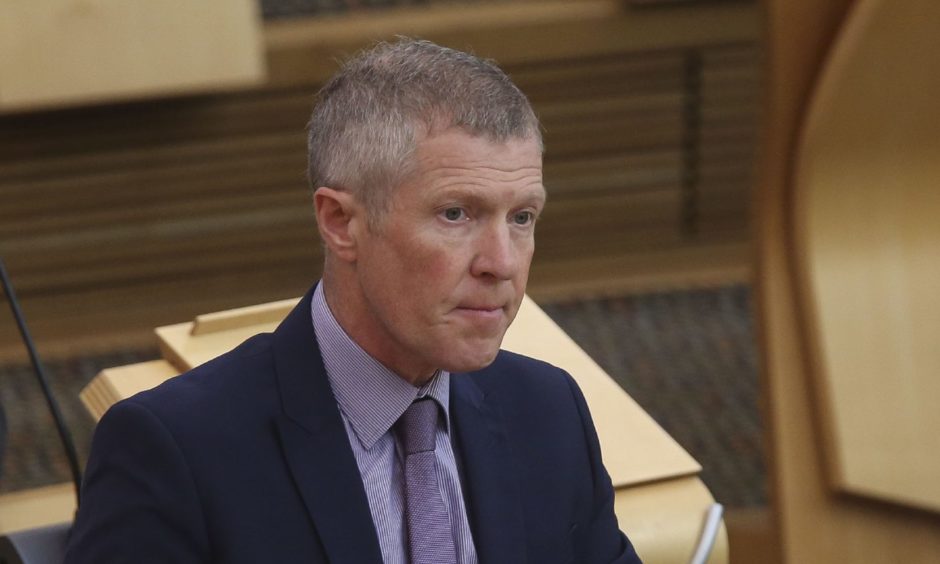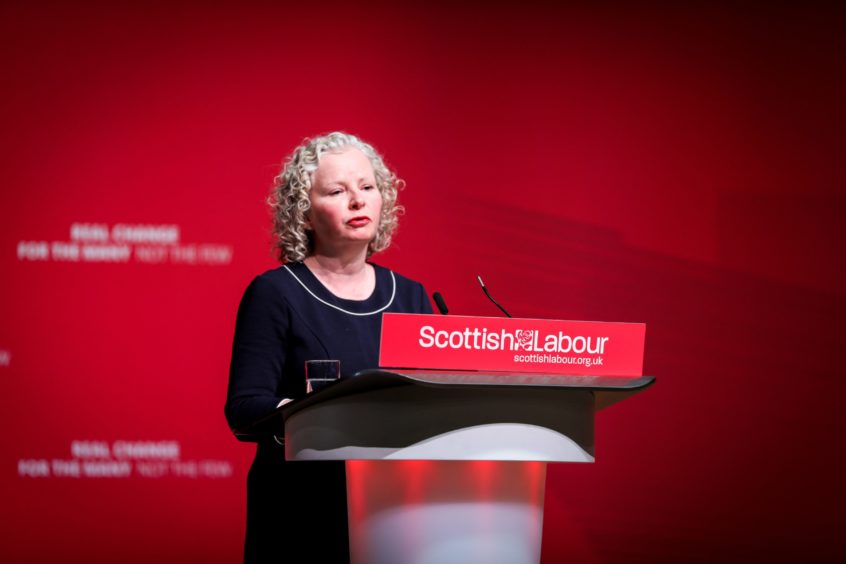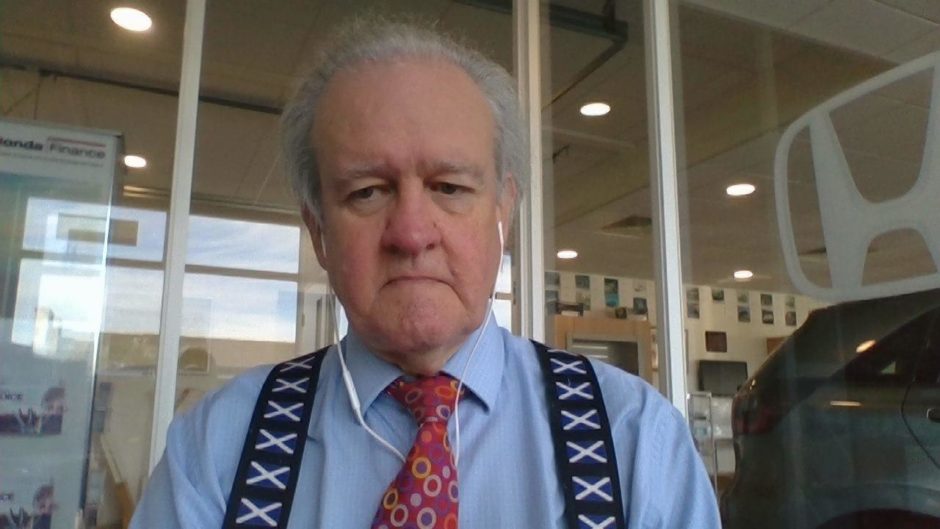The Scottish Parliament has voted against giving consent to the UK-EU trade bill, hours after it was approved in Westminster.
MSPs were recalled to Holyrood for only the fourth time since devolution, to debate the Trade and Co-operation Agreement between the United Kingdom and the European Union, agreed between Brussels and London on Christmas eve.
A Labour amendment to First Minister Nicola Sturgeon’s motion urging the UK and Scottish Government to protect workers’ rights, the Erasmus student exchange scheme and environmental standards was passed by 94 votes to 30.
The amended motion then passed by 92 votes to 30, with a single abstention. Labour North East MSP Jenny Marra was unable to cast a vote due to technical difficulties, but she declared she would have voted in favour of the amended motion.
In Westminster, MPs voted 521 to 73 in approval of the post-Brexit trade deal, with all 47 SNP members voting against.
Labour MPs, including Scotland’s single representative Ian Murray, voted in favour of the agreement.
‘Scotland’s voice ignored’
Opening the debate, Ms Sturgeon said the trade deal had “no benefits, only massive downsides” and ignored “Scotland’s voice”.
She said: “This Bill will pass regardless of how Scotland’s MPs vote because that’s what the Westminster establishment has decided.
“The fact is, Scotland’s voice has been ignored on Brexit all along, every single step of the way.
“But the real disgrace of the Tory position is the notion that lies at the heart of it – that the best Scotland can ever hope for is a choice between a terrible outcome and an even worse outcome.”
Ms Sturgeon accused the UK Government of showing “utter contempt for Scotland and our people” with the Brexit deal.
She said the agreement with the EU will “make us less free” and cost UK businesses £7 billion each year in added regulatory requirements.
“This must be the worst negotiating outcome in history, a hard Brexit for Scotland, and a comprehensive sell-out of the Scottish fishing industry,” Ms Sturgeon said, adding the Scottish Parliament should not be “complicit” with Boris Johnson’s deal.
‘Why do you hate the Smokie?’
The Scottish Conservative leader at Holyrood, Ruth Davidson, accused the SNP of “contortions and “hypocrisy” after the party’s MPs voted against the deal in Westminster.
She had put forward an amendment calling on the Scottish Parliament to back Prime Minister Boris Johnson’s deal.
Ms Davidson said the choice was between a deal or no-deal and said the SNP was “stoking up division”, before accusing Ms Sturgeon of “hating the Arbroath Smokie”.
She said: “To vote against the deal is to vote against zero trade zero tariffs, to vote against deep security intelligence co-operation – never before offered by the EU in such an agreement.
“It’s voting against participation in science and research and space programmes.
“It is voting against agreements for airlines and hauliers and is voting against securing access for our fishermen to markets for their products, and is voting against recognition for geographical indicators like Scotch whisky, Stornoway black pudding and Arbroath Smokies.”
Split denied
Scottish Labour leader Richard Leonard said the Brexit agreement is a “bad deal”, adding that leaving the EU during the coronavirus pandemic is an “abdication of responsibility without modern parallel”.
Mr Leonard denied there was a split between Scottish and the parliamentary Labour party because they were voting on different propositions.
He said: “A vote against the proposition in Westminster today is to risk the chaos and damage of a no-deal outcome.
“And you can’t say by voting against it, as SNP MPs will do today, ‘that wasn’t what we meant’.
“That’s what will happen, which is why Labour MPs will reluctantly vote for the deal because the alternative would be chaos.”
The Lib Dems and Scottish Greens also voted in favour of the first minister’s amended motion, with North East Fife MSP Willie Rennie warning the problems brought about by Brexit would be the same if Scotland chose to leave the UK.
He added that even though the party was supporting the SNP motion, the Lib Dems “do not use Europe as a weapon in another battle, to be discarded”.
So long, and thanks for all the fish
Scottish Conservative MSPs for Mid Scotland and Fife Liz Smith and Dean Lockhart voted in favour of supporting the Westminster agreement.
Ms Smith said the politics of 2016 had “moved on”, and supporting the trade deal would allow the country to do so also.
Mr Lockhart accused the Scottish Government of not supporting trade deals with countries like Singapore and said the UK would, within “two days”, be able to strike trade deals with whomever it wanted.
Mid Scotland and Fife Labour MSPs Claire Baker and Alex Rowley said they were able to support the amended motion in Holyrood, while the Westminster party had to vote in favour of Mr Johnson’s deal to prevent no-deal.
Ms Baker said the impact of Brexit would be felt in communities across Scotland for “months and years” to come, accusing the Conservative government of leading us to an “unnecessary cliff-edge” Brexit.
Mr Rowley said the biggest threat to the union was prime minister Boris Johnson, and the motion – although “meaningless” – was a wake-up call for a change to the devolution settlement and the chance should be taken to build “an industrial base fit for the 21st Century”.
SNP MSP for Banffshire and Buchan Coast Stewart Stevenson quoted a German newspaper that had a headline from Douglas Adams’ Hitchhiker’s Guide To The Galaxy series: “So long, and thanks for all the fish.”
He claimed fishing businesses had been forgotten about by Westminster, and that the deal was bad for fishermen across Scotland, with Scottish and UK fleets still unable to take “100%” of the stocks in the country’s waters.
Mr Stevenson added: “This is why, across Europe there has been celebration. Because the EU got everything it wanted.
“Skippers have condemned (apart from one), without reservation, this shabby deal.”
James Halcro Johnston, Scottish Conservative MSP for Highlands and Islands region, said the UK would be “outside the CFP, as an independent coastal state”, to the industry’s benefit and that the five-year transition would give time to “build” the country’s fishing fleet.
